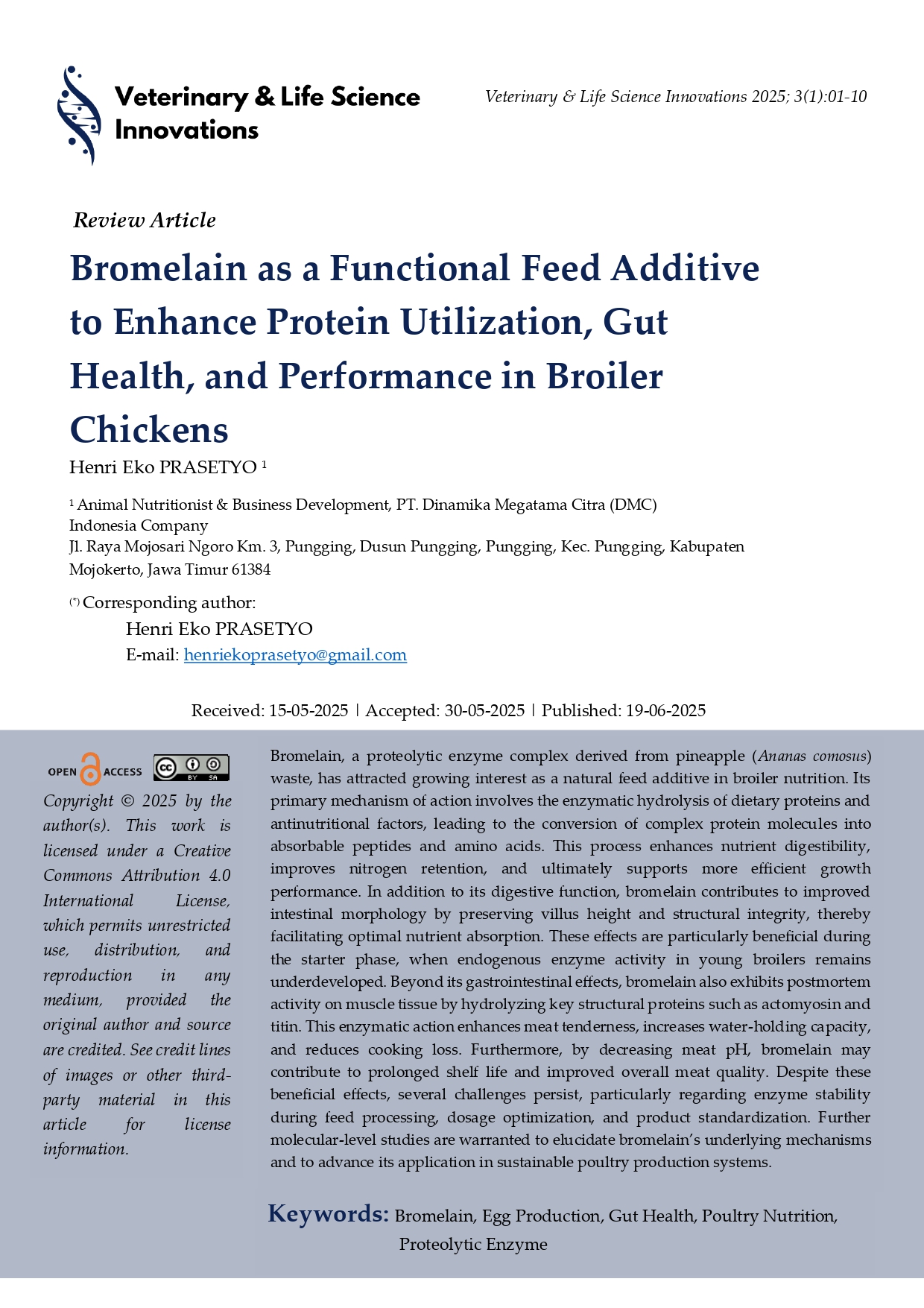Bromelain as a Functional Feed Additive to Enhance Protein Utilization, Gut Health, and Performance in Broiler Chickens
Keywords:
Bromelain, Egg Production, Gut Health, Poultry Nutrition, Proteolytic EnzymeAbstract
Bromelain, a proteolytic enzyme complex derived from pineapple (Ananas comosus) waste, has attracted growing interest as a natural feed additive in broiler nutrition. Its primary mechanism of action involves the enzymatic hydrolysis of dietary proteins and antinutritional factors, leading to the conversion of complex protein molecules into absorbable peptides and amino acids. This process enhances nutrient digestibility, improves nitrogen retention, and ultimately supports more efficient growth performance. In addition to its digestive function, bromelain contributes to improved intestinal morphology by preserving villus height and structural integrity, thereby facilitating optimal nutrient absorption. These effects are particularly beneficial during the starter phase, when endogenous enzyme activity in young broilers remains underdeveloped. Beyond its gastrointestinal effects, bromelain also exhibits postmortem activity on muscle tissue by hydrolyzing key structural proteins such as actomyosin and titin. This enzymatic action enhances meat tenderness, increases water-holding capacity, and reduces cooking loss. Furthermore, by decreasing meat pH, bromelain may contribute to prolonged shelf life and improved overall meat quality. Despite these beneficial effects, several challenges persist, particularly regarding enzyme stability during feed processing, dosage optimization, and product standardization. Further molecular-level studies are warranted to elucidate bromelain’s underlying mechanisms and to advance its application in sustainable poultry production systems.

Downloads
Published
Issue
Section
License
Copyright (c) 2025 Veterinary & Life Science Innovations

This work is licensed under a Creative Commons Attribution-NonCommercial-ShareAlike 4.0 International License.
Veterinary & Life Science Innovations provides open access to ensure that the information and findings in the articles are beneficial to all. All content of this journal article can be accessed and downloaded freely, at no cost, in accordance with the Creative Commons license applied.







